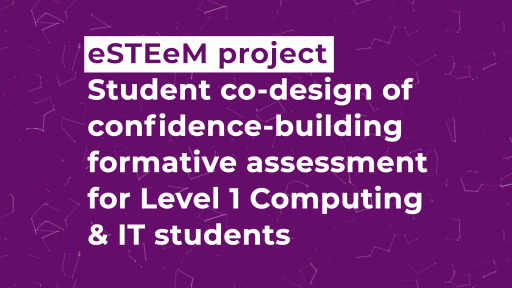1.3.3 Maintaining and sustaining the partnership
Partnerships are based on respect, reciprocity and shared responsibility between students and educators (Cook-Sather et al., 2014). Bonney (2018) describes several challenges and possible solutions in maintaining the partnership:
- Obtaining funding: you may require funding to support students’ contributions (although there are ethical considerations related to incentives which are discussed later in this session).
- Providing timely feedback: students contribute valuable perspectives to the dissemination of outcomes of the SoTL inquiry via blogs, papers, podcasts, exhibitions, reports, etc. Provide timely and adequate feedback to students to promote creative processes.
- Engaging students in data collection and analysis: students may not be allowed to work on certain SoTL inquiries or students may not be allowed access to some data. Hence, it is useful to consult with the ethics committee and student participation research panels early on.
- Maintaining commitment and motivation: it is useful to set up clear objectives of the inquiry and expectations from the partnership for that inquiry through a project plan. Also, provide frequent formative feedback and remind students often of the benefits of the inquiry’s outcomes to the learning and teaching experience.
- Making research findings public: involve students as authors, co-presenters and collaborators in the dissemination process and give them public recognition for their efforts. A greater diversity of formats for going public with SoTL will enable students to access, share and develop this work, including websites, blogs and podcasts (Felten et al., 2013).
SoTL projects may benefit from establishing shared and individual values at the start, building in reflection on the process of partnership and understanding the cultural perspectives each partner brings (McConnell and Wisker, 2016). Further, it is important to be transparent with information, processes and outcomes for a successful partnership.
Activity 3 Students as co-designers of formative assessment
This video features Paul Piwek and Simon Savage of the School of Computing and Communications in the Faculty of STEM at The Open University.
As you are watching the video (duration 3 minutes and 24 seconds), reflect on the way students have been involved in this SoTL inquiry, and the advantages for both students and educators.
For a better viewing experience, you may like to view the video in full-screen mode.

Transcript: Video 3 Student co-design of confidence-building formative assessment for Level 1 Computing and Information Technology (IT) students
Discussion
This video showcases an example of involving students as partners in from the Computing and Information Technology (IT) discipline in the Faculty of STEM at The Open University. In the module TM112 Introduction to computing and information technology 2 [Tip: hold Ctrl and click a link to open it in a new tab. (Hide tip)] , there are formative quizzes to help students build confidence with programming and problem-solving tasks.
A SoTL inquiry was established as an eSTEeM-funded project, with the aim of improving the design and use of online quizzes. Central to this project was a co-design workshop with a small group of previous TM112 students. At this workshop, educators and students worked together to design new quiz questions and to redesign existing quiz questions.
After the workshop, the quizzes were redesigned, and the most recent cohort of students is working with the new set of questions. The project team is analysing the data to determine the efficacy of the changes.
In addition, the team is reflecting on the benefits and challenges of integrating student voice. Involving students has led to not only re-designing the quizzes using a student’s perspective, but also that the educators have a better understanding of how students engage with a module’s resources and diverse approaches to studying.
If you are interested in knowing more about this project, see: Student co-design of confidence-building formative assessment for Level 1 Computing & IT students
The next activity will give you an opportunity to reflect on what you have learned about students as partners in SoTL in this session thus far.
Activity 4 Students as partners in a SoTL inquiry
- For the SoTL inquiry that you are designing to conduct in the near future, makes notes on how you may involve students as partners in your SoTL inquiry.
- If you are not currently planning to conduct a SoTL inquiry, reflect on how your academic practice can be influenced by involvement of students.
In the remainder of this session, you will learn about ethical considerations in SoTL practice.
